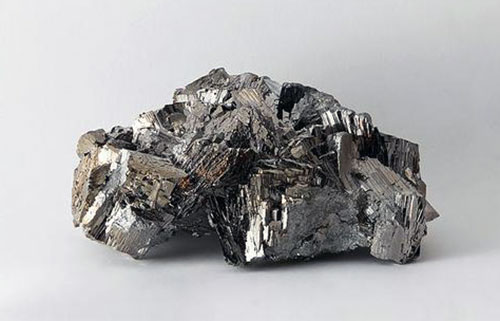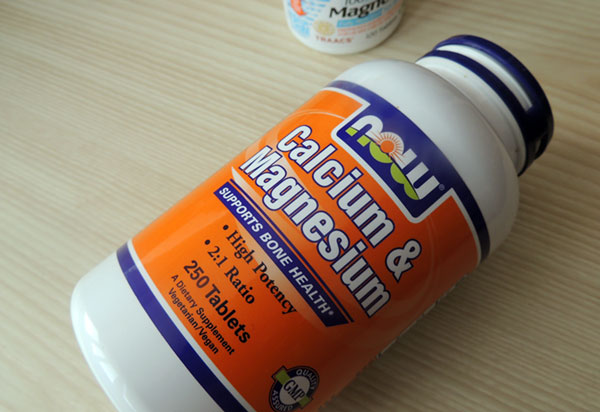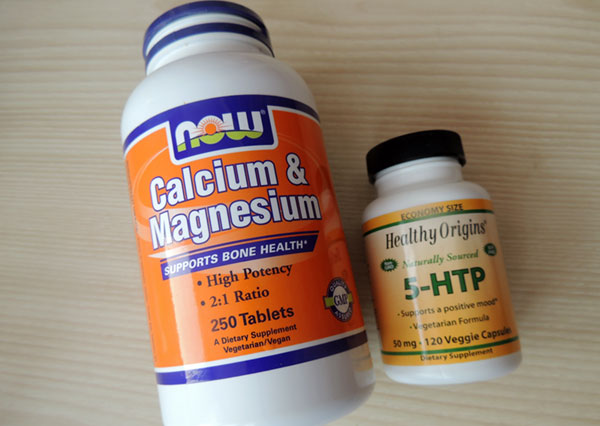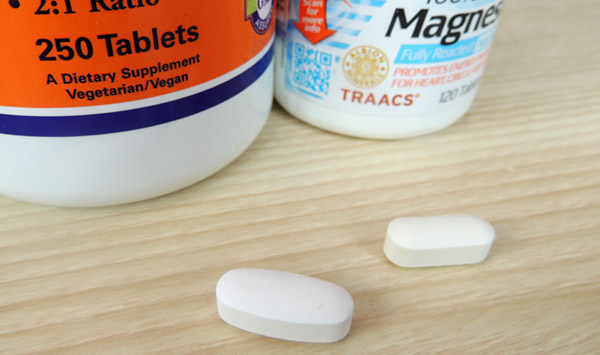Good day or night))
Today's article is devoted to an element that rightfully deserves it - magnesium.
In a series of micro and macro elements vital for humans, magnesium occupies the place following the leader of the list - calcium. Its role in hundreds of thousands of invisible chemical processes occurring in our body is enormous - it ensures the smooth functioning of almost all human systems and its internal organs.
Magnesium is often compared to oxygen, referring to its importance in human life. Or with a charged battery that supplies energy to fuel most biochemical processes, since magnesium:
- Helps proper absorption of calcium and potassium;
- Improves the synthesis of most food enzymes;
- Increases immune protection against infections, due to its high activity in the process of producing antibodies, and also helps to adapt to the cold in winter;
- Promotes ;
- Stimulates the provision of the female body with estrogens - sex hormones;
- Maintains the balance of electrolytes in the body and normalizes the functioning of cell membranes;
- Regulates the coordination of the work of nerve and muscle fibers, reducing their excitability, is responsible for relaxing the muscular system;
- It has a calming effect on the central nervous system and increases the body's resistance to stress. Any nervous tension leads to an increase in the release of adrenal hormones and an increase in the level of adrenaline in the blood. It becomes a trigger for the excretion of magnesium through the kidneys. So help it is possible if magnesium is taken in combination with drugs;
- Regulates the exchange of calcium, keeping its salts in a state of solution and does not allow the crystallization of its molecules. Due to the prevention of precipitation of calcium salts, it prevents the formation of stones in the kidneys and gallbladder;
- Promotes the formation and development of bone tissue;
- Accelerates metabolism, increases the level of "good" cholesterol in the body and reduces the amount of "harmful";
- Restores carbohydrate metabolism by regulating blood sugar, participates in reactions for their conversion into energy and prevents the onset of diabetes;
- Provides a healthy state of the cardiovascular system, lowers blood pressure;
- Improves respiratory function, which is especially important for asthma or bronchitis;
- Normalizes the level of acidity in the stomach and regulates its peristalsis;
- Magnesium alleviates the symptoms of PMS in women.
Magnesium: what does the body need this silver-white metal for and in what quantity

The body of an adult contains from 25 to 70 g of magnesium. The lion's share of this metal is found in bone tissue (about 60%), as well as in muscles (20%) and in the heart, kidneys, liver and brain, which need it for smooth functioning (19%), and in extracellular fluid (1% ).
Magnesium is not produced by our body, but comes exclusively from food.
The daily requirement for this vital metal depends on the age and gender of the person, as well as the physical activity of those who decide to replenish their diet with foods containing magnesium. The opinions of nutritionists differ on this issue: some recommend that women take 300 mg of the substance per day, and men - 350 mg, others advise adhering to the norm of 500 mg.
The maximum amount of magnesium that is allowed to be taken per day is 800–1000 mg, but this rate is set if there are diseases associated with magnesium deficiency.
Experts also advise to independently calculate the individual daily dose of magnesium, based on the proportion: 4 mg per 1 kg of human weight. Pregnant women and nursing mothers need a little more of this element - 400-450 mg.
The need for constant replenishment of magnesium reserves in the body also increases with heavy physical exertion, stress, protein diets, certain diseases of internal organs and excess weight, alcohol abuse and caffeinated drinks.
What causes a lack of magnesium in the body: symptoms and consequences
Up to 80% of people are magnesium deficient without even knowing it. A clinical blood test also reveals it only in every tenth patient. However, there is the simplest diagnostic method: it is worth stretching well and tightening the muscles, as soreness in the ankles will signal a lack of a macronutrient.
Symptoms of magnesium deficiency in the body are:
- Frequent fatigue and distraction;
- Apathy, lack of appetite (possible nausea and vomiting);
- Difficulties in perceiving information, decreased concentration and deterioration of short-term memory;
- Chronic bad mood, constant irritability, discontent, sensitivity to noises;
- Tendency to depression;
- Insomnia and broken state in the morning, even after 7-8 hours of sleep. As you know, the adrenal glands are most active at 6 o'clock in the morning, when they produce hormones that give the body a charge for the whole day for active work. If a failure occurs due to a magnesium deficiency, then you feel cheerful in the evening, and in the morning you feel overwhelmed and distracted. You can read about another assistant in the fight against insomnia in the article.
- Violation of cardiovascular activity: arrhythmia and palpitations;
- In women - disruptions in the menstrual cycle, violations of the process of ovulation, conception and pregnancy;
- Weakened immunity, susceptibility to colds;
- Frequent dizziness, loss of balance, headache and the appearance of "black floating dots" before the eyes;
- Weakening of cell function to resist cancer;
- Cramps and muscle spasms, hiccups and nervous tics (eye twitching) are often the result of magnesium deficiency in the body;
- Aches in the bones, sensitivity to changes in the weather, changes in temperature and humidity;
- Anemia, decreased blood flow in the vessels, impaired blood microcirculation in organs and tissues;
- Chilliness of the limbs;
- The appearance of early signs of aging: wrinkles, swelling and bags under the eyes, unhealthy complexion, as well as changes in the structure of connective tissue due to a lack of magnesium, an increase in the number of free radicals - the main culprits of age-related transformations in the body;
- Dental caries, age-related osteoporosis of bones, fragility of nails and hair.

If magnesium deficiency is not eliminated in time, it can provoke the development of heart and brain diseases, leukemia and diabetes mellitus. An organism that is deficient in a macronutrient takes it from the organs of the endocrine system, bone tissue in order to replenish its concentration in the blood plasma. Doctors can detect such a dangerous symptom when the body is in critical condition.
A lack of magnesium can become a trigger for the deposition of calcium salts in the kidneys, heart muscle, and in the walls of blood vessels. This will cause skeletal muscle spasms, painful spasms in the bronchi, esophagus, intestines and internal organs.
What foods contain magnesium
Most of this useful mineral can be obtained from:
- Buckwheat and millet groats, brown rice;
- Rye and legumes: soybeans, peas, beans and lentils;
- Sprouted wheat and bran from it;
- Various nuts, watermelon or spinach.
Smaller amounts of magnesium are present in:
- Wheat bread and potatoes;
- Corn and carrots;
- Beets and white cabbage;
- In leafy vegetables, salads;
- In green and onion.
Unfortunately, magnesium in nuts, bran and sesame is not easily available for absorption due to the presence of chitin in them, which prevents the absorption of the mineral - its bioavailability.
Among animal products, the most magnesium can be found in liver, rabbit, veal, pork, as well as good quality ham and sausages.
Slightly less magnesium contains: dark chocolate and cheese, fish and seafood, sour cream, cottage cheese, eggs and yogurt.
Industrial and thermal processing of products most often sharply reduce the concentration of magnesium ions in them (from 35% to 80%).
What foods contain magnesium and calcium?
The list of products that combine a "duet" of calcium and magnesium, mutually complementing each other, consists of:
- Beans, green peas, lentils, beans and soybeans, which can be consumed in the first and second courses daily;
- Sesame seeds, poppy seeds and almonds, hazelnuts, walnuts, peanuts, dried apricots, raisins, sunflower seeds and pumpkins, although not included in the daily diet, are rich sources of two essential minerals;
- Seaweed, halibut, chinook, crab meat, salmon, cod, mackerel, anchovies, oysters, mussels and sardines are the richest source of calcium and magnesium.
![]()
Before taking magnesium in food supplements or multivitamin complexes, it is advisable to consult a doctor, but you can use foods with this vital mineral on your own, without medical approval.
I draw your attention to the fact that those who have kidney failure should not take magnesium supplements without the supervision of their doctor.
Which magnesium is best absorbed by the body?
Different magnesium preparations do not have the same effect. The amount of "pure" magnesium contains:
- in magnesium gluconate - 5.8 percent;
- in chloride - 12%;
- in citrate - 16.2%;
- in glycinate - 50%;
- in magnesium oxide - the highest concentration of the available mineral - 60.3%.
According to doctors, the most effective drug is magnesium orotate, but it is the most difficult to find on sale, among other drugs, you should pay attention to magnesium taurate, chloride, glycinate and magnesium aspartate.
If you are against taking supplements, but magnesium is shown to you, as an alternative, you can use foot baths or full baths with Epsom salts - magnesium sulfate, while in such a bath, the skin will absorb as much magnesium as the body needs.
In addition, it is necessary that magnesium and calcium be present in the preparations, the compatibility of which guarantees the correct assimilation of both minerals, if their amount is proportional: for 2 calcium molecules there is 1 magnesium molecule.
In one of the articles, I already wrote about calcium, including that.
When choosing vitamin and mineral preparations, it is advisable to pay attention to its bioavailability. Unfortunately, manufacturers do not always provide such information. Pharmacists often offer optimal preparations in which the combination of magnesium and calcium guarantees good health: Calcium Magnesium Chelate, Calcimax, dietary supplements: Bio-Magnesium, Magnesium Complex and Elemvital with Organic Magnesium, as well as medicines (Magne B6 and magnesium asparaginate) and other vitamin and mineral complexes.
From what I tried myself, I can praise, and very much, calcium and magnesium from Now Food.

I was going to buy calcium preparations, but having met “two in one bottle” I decided to try it, since magnesium is indicated for which I would really like to replace it with a list of more natural preparations.
Of the advantages, in addition to the obvious effect, one can name a rather large number of tablets, there are 250 of them in a package. The bank is very impressive in size))

You need to take them two tablets a day, that is, the package will last you at least 4 months of taking. Therefore, it is especially convenient to buy it in order to share the usefulness with someone from home.
This time I retreated from the recommendations for taking, because the dose seemed high for my weight, so I advise you to take half a capsule. Taking a whole capsule is only suitable for those who have a magnesium deficiency, and this can only be established in a laboratory way)
It is best to take magnesium in the evening since this mineral is a mandatory part of the insomnia treatment program, that is, it can also be used to improve the quality of sleep.
Tablets should be taken with meals. As a minus, one can note their large size, but most of the supplements from America are of such rather big sizes.

I met reviews where some wrote that the tablets are chewed and there are no problems. In good faith, as an experiment, I tried to do this, I must say that the muck is still the same ...)) I didn’t work out with chewing, I prefer to swallow.
Price: $12.73.
Where can I buy: Calcium and Magnesium Now Food.
If the size is important for you, or you don’t need calcium as a supplement, or you need a smaller dosage of magnesium, then pay attention to the magnesium of the well-known company Doctor’s Best.

Tablets are not much here, but still less.

Magnesium is in a highly absorbable chelate form, in an amount of 200 mg. The number of tablets is 120 pieces.
Price: $8.94.
Buy Magnesium Doctor's Best can be found at this link.
Health to you, and may all health problems be eliminated without medication ????
The article uses materials from the books of Dr. R. Atkins. class="related title" 


